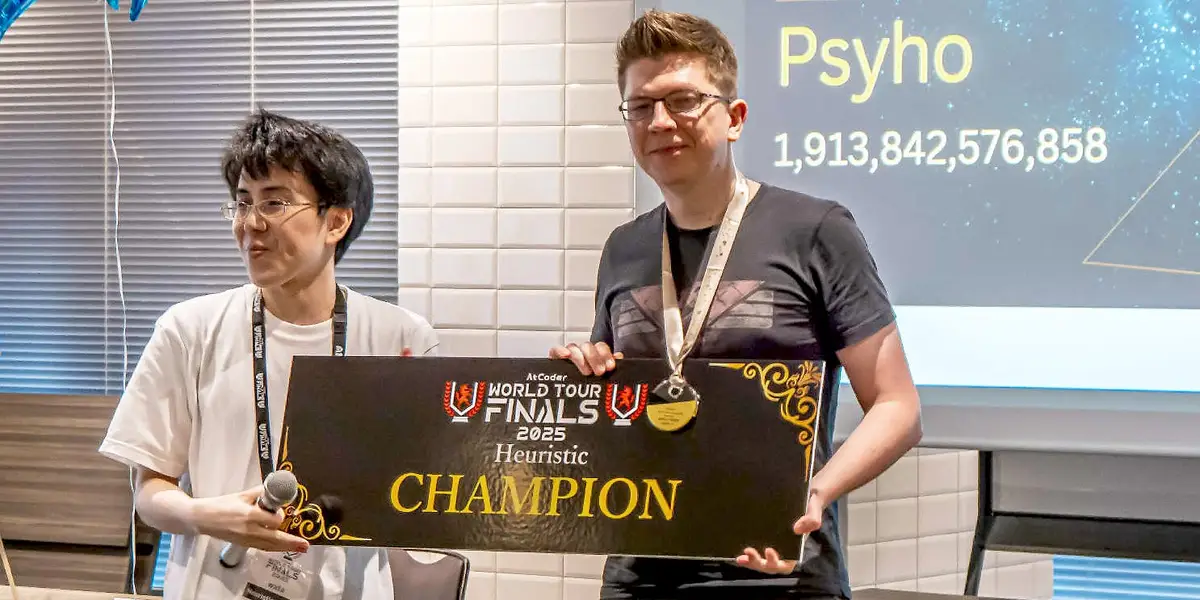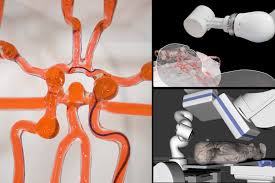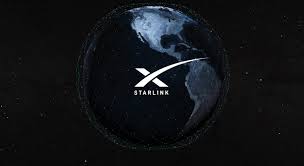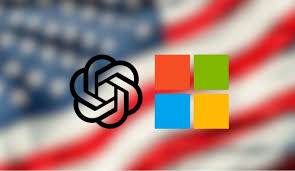Human vs. Machine: Polish Programmer Outsmarts OpenAI’s Coding Tool at Global Contest

In a thrilling showdown at the AtCoder World Tour Finals 2025 in Tokyo, a Polish programmer named Przemysław Dębiak, known online as “Psyho,” beat an advanced artificial intelligence (AI) model created by OpenAI. This victory, celebrated by OpenAI’s CEO Sam Altman with a simple “good job psyho” post on X, highlights the power of human creativity in a world increasingly dominated by AI. The event has sparked conversations about the future of programming and whether humans can keep up with machines. Let’s dive into this exciting story, explore what happened, and understand why it matters.
The AtCoder Showdown: A Battle of Brains
The AtCoder World Tour Finals is a prestigious coding competition held annually in Japan. Only 12 of the world’s best programmers qualify each year, making it an elite event. In 2025, the contest introduced a unique twist: a “Humans vs. AI” challenge. OpenAI, the company behind ChatGPT, entered its custom-built AI model, named “OpenAIAHC,” to compete against top human coders, including Dębiak.
The competition lasted 10 grueling hours, with participants tackling a complex optimization problem. These problems, known as NP-hard, require clever strategies to find the best solutions under tight time limits. Dębiak, a former OpenAI engineer, emerged victorious with a score of 1,812,272,558,909 points, beating OpenAI’s AI, which scored 1,654,675,725,406 points—a 9.5% difference.
Why This Win Matters
- Human Creativity Shines: Dębiak’s unique approach outsmarted the AI, showing that human intuition can still surpass machine logic.
- A Symbolic Moment: The victory is a reminder that humans can hold their own against AI, even as technology advances rapidly.
- Inspiration for Young Coders: Dębiak’s success encourages students to hone their skills and think outside the box.
Human vs. AI at AtCoder 2025
| Competitor | Score | Rank | Key Strength |
|---|---|---|---|
| Przemysław Dębiak | 1,812,272,558,909 | 1st | Creative problem-solving |
| OpenAI’s AI | 1,654,675,725,406 | 2nd | High-speed optimization |
| Other Humans | Lower scores | 3rd-12th | Varied strategies, less effective |
Dębiak’s Journey: From OpenAI to Victory
Przemysław Dębiak is no ordinary coder. He once worked at OpenAI, helping develop an AI system that defeated professional Dota 2 players in 2019. His experience gave him insight into how AI thinks, which likely helped him outmaneuver OpenAI’s model. After the contest, Dębiak shared his exhaustion on X, saying he slept just 10 hours over three days but was thrilled that “humanity has prevailed (for now!).” His win wasn’t just about coding; it was about pushing human limits under pressure.
I remember my first coding competition in high school, nervously typing lines of code while the clock ticked down. The thrill of solving a tough problem felt like solving a puzzle no one else could. Dębiak’s victory reminded me of that rush, but on a much bigger stage. His ability to stay focused for 10 hours shows the grit and creativity that define great programmers.
Pros and Cons of Human Coders vs. AI
- Pros of Human Coders:
- Adaptable and creative in finding unique solutions.
- Can think beyond data patterns, using intuition.
- Bring personal experience and emotion to problem-solving.
- Cons of Human Coders:
- Slower than AI in processing large datasets.
- Prone to fatigue during long competitions.
- Pros of AI Coders:
- Lightning-fast calculations and optimizations.
- Consistent performance without getting tired.
- Cons of AI Coders:
- Limited by programmed patterns, less creative.
- Struggles with unconventional problem-solving.
Sam Altman’s Reaction: Praise and Perspective
Sam Altman, OpenAI’s CEO, didn’t shy away from celebrating Dębiak’s win. On July 16, 2025, he posted on X, “good job psyho,” a short but meaningful nod to human skill. OpenAI also congratulated Dębiak, posting, “Our model took 2nd place at the AtCoder Heuristics World Finals! Congrats to the champion for holding us off this time.” This sportsmanship shows OpenAI’s respect for human talent, even as they push AI boundaries.
Altman’s praise comes at a time when he’s been vocal about AI’s growing role in coding. In a March 2025 interview, he said AI already handles over 50% of coding tasks at many companies. He believes AI will make programmers more productive but may reduce the need for traditional coding jobs in the future. Dębiak’s win, however, suggests humans still have a unique edge.
Table: AI vs. Human Coding Capabilities (2025)
| Feature | Human Coders | AI Coders |
|---|---|---|
| Speed | Slower, but strategic | Extremely fast |
| Creativity | High, intuitive | Limited, pattern-based |
| Endurance | Limited by fatigue | Unlimited |
| Adaptability | Strong, flexible | Improving, but rigid |
What This Means for the Future of Coding
Dębiak’s victory is more than a personal triumph; it’s a moment to reflect on the role of humans in a tech-driven world. AI is advancing fast, with experts like Anthropic’s CEO Dario Amodei predicting that AI could write 90% of code within months. Yet, Dębiak’s win shows that human creativity and problem-solving are hard to replicate. Yoichi Iwata, the AtCoder competition administrator, told Business Insider that while AI excels at optimization, it lacks the “human creativity” Dębiak displayed.
For young students interested in coding, this story is a call to action. Learning to code isn’t just about writing lines of code; it’s about thinking creatively and solving problems. As AI takes over repetitive tasks, coders who can innovate and adapt will stand out. I recall helping my younger cousin debug her first Python program—she was frustrated but thrilled when she found a solution AI couldn’t suggest. That spark of discovery is what keeps humans ahead.
Tips for Young Coders
- Practice Regularly: Use platforms like AtCoder or LeetCode to sharpen your skills.
- Think Creatively: Try solving problems in unique ways, not just the “correct” way.
- Learn AI Tools: Understanding AI can help you work smarter, not harder.
- Stay Persistent: Coding can be tough, but perseverance pays off.
The Bigger Picture: AI and Human Collaboration
The AtCoder contest wasn’t just a competition; it was a glimpse into the future. AI is transforming industries, from healthcare to gaming, but humans still bring something special to the table. Dębiak’s win shows that collaboration between humans and AI could be the key to innovation. Instead of fearing AI, young coders should see it as a tool to amplify their skills.
OpenAI’s second-place finish is still a milestone. Their AI outperformed 10 other elite human coders, proving its strength. But Dębiak’s victory reminds us that humans can push beyond what machines can do. As Sam Altman continues to lead OpenAI in building smarter AI, stories like this show that the human spirit remains a powerful force.
Social Media Buzz
A post on X by @CodeFather10 captured the excitement: “Polish programmer beat OpenAI’s AI model to win a contest in Tokyo. ‘Psyho’ used just VSCode basic autocomplete and not a single AI assistance. He was praised by Sam Altman.” This post, shared on July 19, 2025, reflects the pride and surprise in the coding community.
Looking Ahead: What’s Next for Coding?
As AI grows, the coding world will change. Jobs may shift, with less focus on routine coding and more on creative problem-solving. Schools are already teaching kids to use AI tools alongside coding, preparing them for a future where both skills matter. Dębiak’s story is a reminder that while AI is powerful, human ingenuity is irreplaceable.
For students reading this, think of coding as a superpower. It’s not just about competing with AI but about using it to create something amazing. Whether you’re building a game or solving a math problem, your unique ideas can make a difference. Keep coding, keep creating, and who knows? Maybe one day, you’ll outsmart an AI and earn a “good job” from a tech giant.





